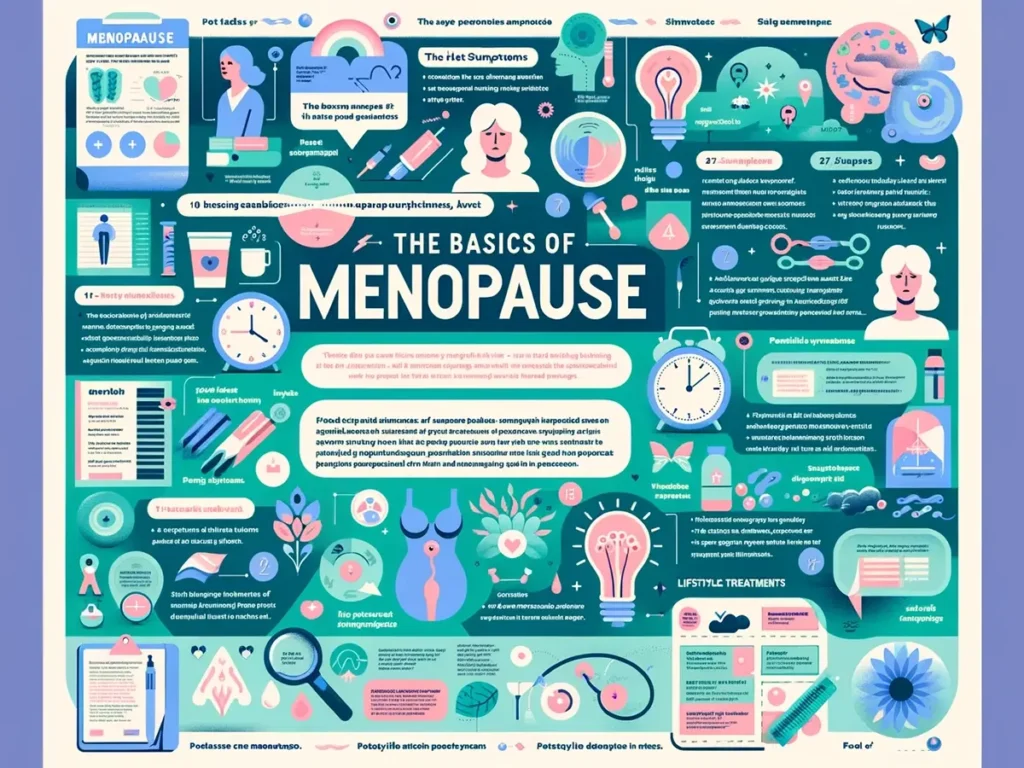There’s a common misconception that menopause symptoms remain constant throughout the entire transition. In reality, menopause symptoms can vary in intensity, frequency, and duration for each individual experiencing this phase of life. Understanding the ebb and flow of menopause symptoms can help women navigate this time with more clarity and confidence.
Key Takeaways:
- Menopause symptoms are not constant: Menopause symptoms can vary in intensity and frequency, with some women experiencing more severe symptoms than others.
- Symptoms may come and go: Menopause symptoms may not be consistent and can come and go over time.
- Hormone fluctuations play a role: Fluctuations in hormone levels during menopause can contribute to the inconsistency of symptoms.
- Triggers can worsen symptoms: Certain triggers like stress, diet, and lifestyle choices can exacerbate menopause symptoms, causing them to fluctuate.
- Individual experiences vary: Every woman’s experience with menopause is unique, and the pattern of symptoms can differ from person to person.
Understanding Menopause Symptoms
One of the most talked-about facets of menopause is the array of symptoms that women can experience during this transitional phase of life. Menopause symptoms can vary widely from woman to woman, and they can also fluctuate in intensity and frequency. Understanding these symptoms is vital for women going through menopause and for those who support them.
Common Symptoms of Menopause
On the journey through menopause, many women encounter common symptoms that can be challenging to navigate. Hot flashes, night sweats, mood swings, and sleep disturbances are some of the more prevalent symptoms experienced. These symptoms can impact daily life, affecting work, relationships, and overall well-being.
On the physical side, women may also experience changes in their menstrual cycles, vaginal dryness, and a decreased libido. Emotional symptoms such as anxiety, irritability, and even depression can also emerge during this time. Women need to recognize these symptoms as part of the menopausal process and seek support from healthcare professionals if required.
Variability of Symptoms
On menopause symptoms, it’s crucial to understand that the experience is highly individualized. While some women may breeze through menopause with minimal symptoms, others may find themselves grappling with a myriad of challenges. Genetics, lifestyle, and overall health can influence the variability of symptoms.
Symptoms can also wax and wane, with periods of respite followed by intense episodes. This unpredictability can be frustrating for women as they try to adapt to the changes in their bodies. By acknowledging the variability of symptoms, women can better prepare themselves for the ups and downs of the menopausal journey.
Factors Influencing Menopause Symptom Constancy
Now, when it comes to menopause, many women wonder if the symptoms are constant or if they fluctuate over time. Understanding the factors that influence the constancy of menopause symptoms can provide insights into managing them effectively. In this chapter, we will explore the various influences that can impact the consistency of menopause symptoms.
Hormonal Fluctuations
Influencing menopause symptom constancy are the hormonal fluctuations that occur during this transitional phase in a woman’s life. As estrogen levels decline, it can lead to a myriad of symptoms, such as hot flashes, night sweats, mood swings, and vaginal dryness. These fluctuations can vary from woman to woman, impacting the consistency of their menopausal symptoms.
After understanding the role of hormonal fluctuations in menopause symptom constancy, women can work with their healthcare providers to explore hormone replacement therapy or other treatment options to help stabilize their hormone levels and alleviate symptoms.
Lifestyle and Environmental Factors
Various lifestyle and environmental factors influence menopause symptom constancy. Stress, diet, exercise, and environmental toxins can all contribute to the severity and frequency of menopause symptoms. By making positive changes in these areas, women may experience more consistent symptom patterns.
- The importance of maintaining a healthy lifestyle during menopause cannot be overstated. Eating a balanced diet, staying active, and managing stress can all contribute to more stable hormonal levels and reduced symptom severity.
- Knowing how environmental factors such as pollution, chemicals, and even certain medications can impact menopause symptoms is necessary for managing them effectively.
The key to managing menopause symptoms is understanding the various factors influencing their constancy. By taking a holistic approach that addresses hormonal fluctuations, lifestyle, and environmental factors, women can better navigate this transition confidently and easily.
- Knowing how to make informed choices regarding treatment options and lifestyle changes can empower women to take control of their menopausal symptoms and live their best lives.
Women must educate themselves about the factors that can impact the constancy of menopause symptoms. By doing so, they can make informed decisions that will benefit their overall health and well-being during this critical stage of life.
Managing Menopause Symptoms
Medical Interventions
Menopause symptoms can vary in intensity and duration for each individual. Medical interventions may be necessary when these symptoms become particularly troublesome or affect your quality of life. Hormone therapy is a standard treatment option that involves replacing estrogen and sometimes progesterone to help alleviate symptoms like hot flashes, night sweats, and vaginal dryness.
In addition to hormone therapy, other medications such as antidepressants, gabapentin, and clonidine can also be prescribed to manage specific symptoms associated with menopause. It’s essential to consult with your healthcare provider to determine the most suitable medical intervention based on your symptoms and overall health.
Natural Remedies and Lifestyle Adjustments
Symptoms of menopause can also be managed through natural remedies and lifestyle adjustments. Regular physical activity, such as yoga or brisk walking, can help reduce hot flashes and improve mood. A balanced diet of fruits, vegetables, and whole grains can support overall well-being during this transitional phase.
Some women find relief from menopause symptoms by incorporating herbal supplements like black cohosh, red clover, or evening primrose oil into their daily routine. Stress management techniques such as meditation, deep breathing exercises, and adequate sleep can help alleviate symptoms and improve quality of life.
This comprehensive approach to managing menopause symptoms combines medical interventions with natural remedies and lifestyle adjustments to address the physical and emotional changes that occur during this stage of life. Working closely with your healthcare provider is vital to find the best strategies that suit your needs and preferences.
Final Words
Following this discussion, it is clear that menopause symptoms are not constant but can fluctuate in intensity and duration. While some women may experience consistent symptoms, others may have periods of relief before their symptoms return. It is essential for women going through menopause to be aware of these fluctuations and to seek medical advice if they are experiencing severe or prolonged symptoms. By understanding menopause symptoms can vary over time, women can better manage their health and well-being during this transitional phase.
FAQ
Q: What are menopause symptoms?
A: Menopause symptoms are a combination of physical and emotional changes that occur in women as a result of hormonal fluctuations during menopause. Common symptoms include hot flashes, night sweats, mood swings, and changes in the menstrual cycle.
Q: Are menopause symptoms constant?
A: Menopause symptoms are not constant for every woman. Some may experience mild and occasional symptoms, while others may have more severe and persistent ones. It varies from person to person.
Q: How long do menopause symptoms last?
A: Menopause symptoms can last from a few months to several years. On average, most women experience symptoms for about four years. However, some women may have more prolonged symptoms, even over a decade.
Q: Can menopause symptoms be managed?
A: Yes, menopause symptoms can be managed through lifestyle changes, hormone therapy, and other treatments. It’s essential to consult with a healthcare provider to discuss the best options for managing your specific symptoms.
Q: When should I seek medical help for menopause symptoms?
A: You should seek medical help for menopause symptoms if they are significantly impacting your quality of life or if you are experiencing unusual symptoms. Getting a proper evaluation to rule out any other underlying conditions and determine the best treatment course.






